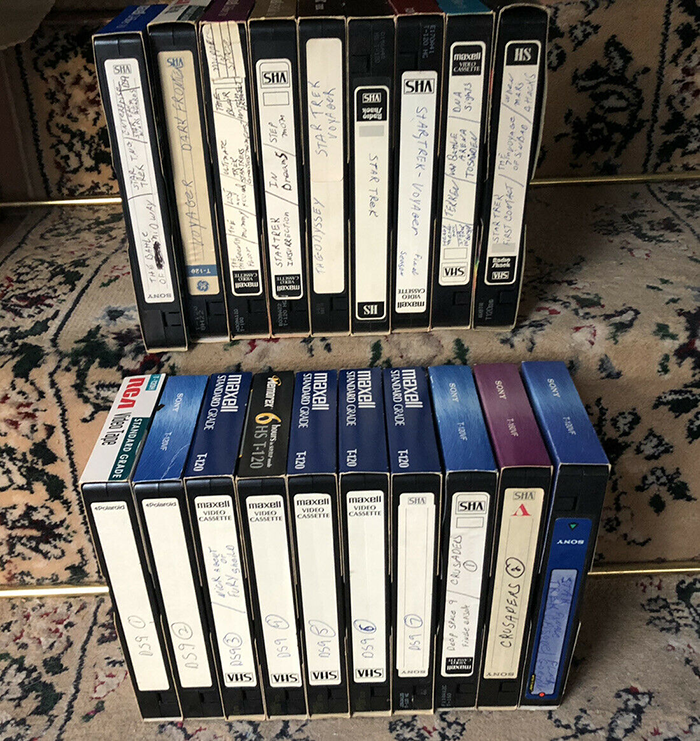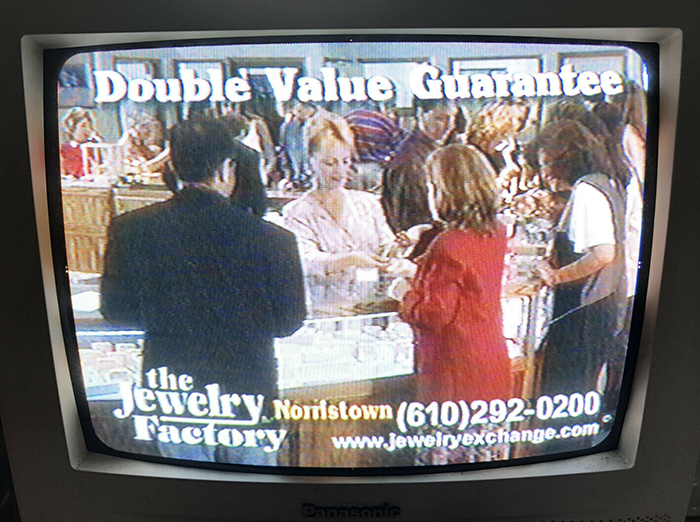Today I would like to talk about mental and physical health, and how that effects our goals with writing, creating, and sharing. I’ll review my own journey with this recently, and use that dig into the larger topic for how you can better create and share your work with your ideal audience.
(Note: I’m not a doctor or medical professional, and have zero health certifications. These are just my experiences as a writer and artist, who has spent his life surrounded by writers and artists. Your journey is your own, your health is unique, and always seek professional guidance where possible. If you disagree with anything I share below, please know: you are right! You get to choose the path that works best for you when it comes to health. Please feel free to ignore my advice!)
Health is a Part of Our Creative Ecosystem
I want to wake up each day and feel capable. Capable to create. To publish. To share that work with people who inspire me, and I feel it may resonate with. To feel creatively capable, it requires me to consider my life as a whole. Too often, we treat each area of our life as separate: we may have a daily planner for work goals, a routine around our creative work, then a separate way to track finance, family, etc.
But these things are all interrelated because you are one person who has the same finite amount of time each day. One area of your life effects the others. This is why my Clarity Card exercise is not just focused on one’s creative goals, it forces you to consider all of your goals holistically.
Something I have been thinking a lot about recently is how mental and physical health impacts our creative capacity. It can create more energy, it can reduce anxiety, and positive health habits can lead to positive creative habits. I have also found that good health habits allow me to address problems when they arise in a more streamlined manner. Instead of a sudden minor health issue disrupting my creative routines, I am better able to address them, and ensure creating and sharing are interrupted as little as possible. No one can plan for unknown health issues, but you can prepare so you are better able to handle the unexpected.
Why am I talking about this in a newsletter that is usually focused on how to best share your creative work so it reaches readers and an audience? Because so much of success in that area is about having a solid foundation to do this work, and it is all too common for a health problem to disrupt that.
I want good health so I can focus on creativity and connection. To do that, I have found that the more I attend to my health, the more my life opens up to writing and sharing.
Mental Health Matters As Much (Or More?) As Physical Health
Mental health plays a big part in our creative process, our ability to establish and keep creative habits, and whether we can effectively share our work with others in a manner that is meaningful.
Working with writers and creators, I take mental health seriously. We all have our own unique boundaries around what we create, what we share, and how to do so. That is why I like working in close collaboration, so that I can understand each client’s unique preferences here, and we can adjust the strategy accordingly. There is no “one size fits all.”
Creative work tends to be surrounded by potentially negative narratives that can effect mental health:
- Impostor syndrome: the feeling that, despite our accomplishments or success, that we haven’t really earned validation or attention.
- Comparisonitis: the feeling that others are better at their craft than we are, or that they are more naturally gifted in how they share their work.
- Uniqueness: with so much being shared online and offline, a creator can stop creating for fear that their work is somehow not unique. They see their influences in every word they write, every brush stroke on a canvas.
- Identity: we fail to share what we create because we don’t feel it encapsulates all of who we are, and the fear creeps in that each piece of work will lock us into a confining identity.
There are so many other examples of fears that someone may have around what they create, and each can drastically effect our mental health. I don’t have any revolutionary advice here, but I have found that the more I observe my own routines and inner narratives around creating and sharing, that I am able to identify what blocks me from doing so. I also speak to a lot of creative people, and learning about their own process helps remind me that no one has an easy time with this. That feels validating, and helps me identify positive mental health practices.
If you don’t feel you have many other writers or artists in your life to learn from, you can always listen to interviews with creators on podcasts and YouTube. Feel free to start with my podcast, The Creative Shift, which is filled with honest conversations around mental health from inspiring creators. Plus: new season coming soon!
Be Proactive Vs Reactive with Physical Health
I’ve dedicated myself to a new health routine recently, and I approached it entirely differently than I have in the past. I’m 48 years old, and usually when I started a new fitness routine, I would be looking back to being as fit as I was when I was younger. But I recently flipped that entire perspective. I am not looking backwards, I am now looking ahead.
When I work out now, all I think about are the experiences I hope to have in the future, when I am 58, 68, and 78. I think of wanting to travel with my wife; I think of books I want to write; I think of hobbies like gardening that I want to be able to pursue well into my later years (gardening can be difficult on one’s knees and back.)
If I had to sum up my fitness routine, I suppose I would say that I am NOT on a mission not to have six pack abs, but rather to be able to pick up my grandkids one day.
For instance, I have scoliosis, and have had bad bouts of pain in my back over the years for various reasons. I know how debilitating it can be when one area of your body is in pain.
Beyond goals of being able to travel or pick things up, this relates to my future creative work as well. I want to be able to show up as who I am online and offline in the future. To be able to go to workshops and events, to not feel self-conscious about posting selfies or videos online. The healthier I get, the more I find myself leaning into sharing who I am, and showing up to social interactions. As someone who helps writers and creators with marketing, I know how much fear of showing up can limit how effectively our work is shared.
The other week I mentioned that the QL muscle in my back had gone haywire. Surprisingly, I got it under control within three days, and now have a proactive stretching routine to strengthen it. How? Well, because of YouTube. It’s amazing the resources we have today that we couldn’t have dreamed of years ago. I watched dozens of videos from personal trainers and physical therapists who explained how the pain is cause and ways to remediate it.
I now have a daily workout routine that is very simple, and focused on flexibility. It is not super intense, I can do it at my studio or home with very little specialized equipment.
The results of this work over the past few months?
- I am way more flexible, which really helps when you have a 4 year old and 10 year old, and am always doing chores around the house and yard.
- It’s easier for me to do work at my desk for longer periods of time.
- Many small aches and pains are gone. For those that return, I now have a process to manage them.
- I simply feel more comfortable. It’s hard to explain, but I do feel it has opened up more of my energy to focus on creative work.
- I am less likely to injure myself because I am working on lots of small muscles that help me move better through my day.
Your Creative Capacity Only Grows in Value
It’s easy to think “I’m not as young as I used to be”, as an excuse to not try to better one’s health. It’s not much different than narratives writers and artists face: “It’s too late for me to publish my first book, I should have done this years ago.”
But what if you take a different view. What if we consider the experience that health can bring us:
- To fill our days with more creativity because health tends to fill our days with more energy. See my post last week for a deep dive on that topic.
- How one habit can lead to building other new habits. If you have a consistent fitness habit, you have all of the building blocks you need for a consistent writing or creative habit.
- To better manage anxiety (see above). When we get fit — however you define that — it tends to help reduce stress.
Your creative capacity only grows in value, and I think attending to health can protect that.
I have been considering how things that we once thought of as not valuable, are actually increasing in value. This is my favorite example that I discovered this week on eBay: old used VHS tapes with recordings from TV of Star Trek episodes. This lot of 19 tapes sold $250!

Why did these sell for so much? I’m not entirely sure, but my guess:
- The buyer wants to experience the shows as they remember watching them in the 80s and 90s, with broadcast quality video, and old school commercials.
- They want to archive the older commercials of this era along with the shows.
I mean, here is a screenshot of one of the commercials on the tape, isn’t it amazing to think that this is the kind of thing people want to preserve and are sentimental for?

What if we had the same perspective on the future of our creative work: that it is only increasing in value and potential. Wouldn’t you want to invest in that? Wouldn’t some form of attention to health help with that?
Some wonderful resources:
You get to define health in any way that you want. Find the process that works best for you. Here are some resources that have helped me:
- Shannon Connery’s PACE process. This is her website, and Shannon I shared two interviews with her on my podcast: here and here.
- A personal trainer I have worked with, Brad Sims, has a YouTube channel where he has shared more than 200 videos on specific exercises.
- Sarah Hays Coomer has a health coach column at Forbes which is great, and I highly recommend her book The Habit Trip.
- Kelly McGonigal’s book, The Joy of Movement
- Joanna Penn’s The Healthy Writer
I’d love to know: how has health effected your creative work? What routines, habits, or resources have helped you?
Thanks.
-Dan
